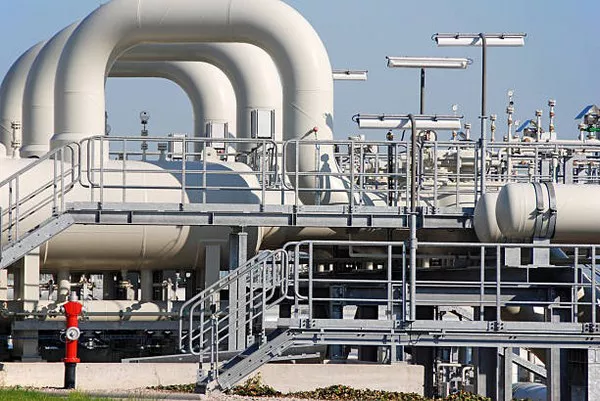When it comes to keeping our homes comfortable, central air conditioning systems have become a staple. A crucial component of these systems is the central air compressor, responsible for cooling and circulating refrigerant throughout the entire system. As homeowners or businesses consider installing or replacing central air compressors, understanding the cost involved is paramount. In this article, we delve into the factors that influence central air compressor prices and provide insights into what you can expect when making this important investment.
Understanding the Central Air Compressor
Before we dive into the cost considerations, it’s essential to understand the central air compressor’s role within an HVAC (Heating, Ventilation, and Air Conditioning) system. The compressor is the heart of the system, as it pumps and pressurizes refrigerant gas, allowing it to absorb and release heat effectively. This process is what enables your home or commercial space to maintain a comfortable and consistent temperature.
Factors Influencing Central Air Compressor Prices
Central air compressor prices can vary significantly based on several factors. By understanding these factors, you can make an informed decision that aligns with your budget and needs.
1. Compressor Type:
Central air compressors come in various types, with each type catering to specific requirements. The most common types include:
Single-Stage Compressors: These are the most basic and affordable compressors. They operate at a fixed speed, which means they are either on or off. While cost-effective, they may be less energy-efficient.
Two-Stage Compressors: These compressors have two operating modes, allowing them to run at a lower capacity when cooling demands are lower. This feature increases energy efficiency but typically comes at a higher upfront cost.
Variable-Speed Compressors: These compressors offer the highest energy efficiency. They can adjust their speed and capacity according to the cooling needs, providing precise temperature control. However, they are often the most expensive option.
2. Brand and Manufacturer:
The brand and manufacturer of the central air compressor can significantly impact its price. Established and reputable brands often command higher prices due to their track record of reliability and quality. While lesser-known brands might offer lower prices, it’s essential to research their reputation and reliability before making a choice.
3. Compressor Capacity (Tonnage):
The capacity of the central air compressor is measured in tons. The larger the space you need to cool, the higher the capacity required. Compressors with higher tonnage have more significant cooling capabilities but also come with a higher price tag.
4. Energy Efficiency (SEER Rating):
Energy efficiency is a critical factor in central air compressor prices. Compressors with higher Seasonal Energy Efficiency Ratio (SEER) ratings are more energy-efficient but may cost more upfront. However, they often result in long-term savings on energy bills.
5. Installation Complexity:
The installation of a central air compressor can vary in complexity. Retrofitting an existing HVAC system or replacing an old compressor may be less expensive than installing a completely new system, which involves additional components like ductwork.
6. Geographic Location:
Local factors can also influence central air compressor prices. For example, labor costs, permits, and taxes can vary from one region to another. Additionally, climate conditions can impact the type and size of the compressor needed, affecting the overall cost.
7. Additional Features and Accessories:
Central air compressor prices can also be influenced by optional features and accessories, such as advanced air filtration systems, smart thermostats, or zoning systems. While these additions can improve comfort and energy efficiency, they come with additional costs.
Average Central Air Compressor Prices
With these factors in mind, let’s explore the typical price ranges for central air compressors:
Single-Stage Compressors: On average, a single-stage central air compressor can cost between $1,500 and $2,500, including installation.
Two-Stage Compressors: Two-stage compressors tend to be slightly more expensive, ranging from $2,000 to $3,500, including installation.
Variable-Speed Compressors: Variable-speed compressors are the costliest option, with prices ranging from $2,500 to $4,500 or more, including installation.
It’s important to note that these price ranges are approximate and can vary based on the factors mentioned earlier. To get an accurate estimate for your specific situation, it’s advisable to request quotes from local HVAC professionals who can assess your needs and provide tailored recommendations.
Additional Costs to Consider
When budgeting for a central air compressor, it’s crucial to account for potential additional costs, including:
Installation Costs: The cost of professional installation is a significant part of the overall expense. Installation prices can vary depending on the complexity of the job and local labor rates. Expect to allocate a significant portion of your budget to installation.
Ductwork: If your existing ductwork is inadequate or needs repairs or modifications, this can add to the total cost. Proper ductwork is essential for efficient cooling distribution.
Maintenance: Regular maintenance is essential to ensure the longevity and efficiency of your central air compressor. Consider budgeting for annual maintenance checks and any necessary repairs.
Energy Costs: While not an upfront cost, it’s essential to factor in long-term energy costs when evaluating the overall affordability of your central air compressor. Opting for a more energy-efficient unit may result in lower monthly utility bills.
Conclusion
Investing in a central air compressor is a significant decision that can enhance the comfort and value of your home or commercial space. Central air compressor prices vary widely based on factors such as type, capacity, brand, and location. To make an informed choice, consult with HVAC professionals, obtain multiple quotes, and prioritize energy efficiency for long-term savings. With careful consideration and planning, you can find a central air compressor that aligns with your budget and provides the cooling performance you desire.

